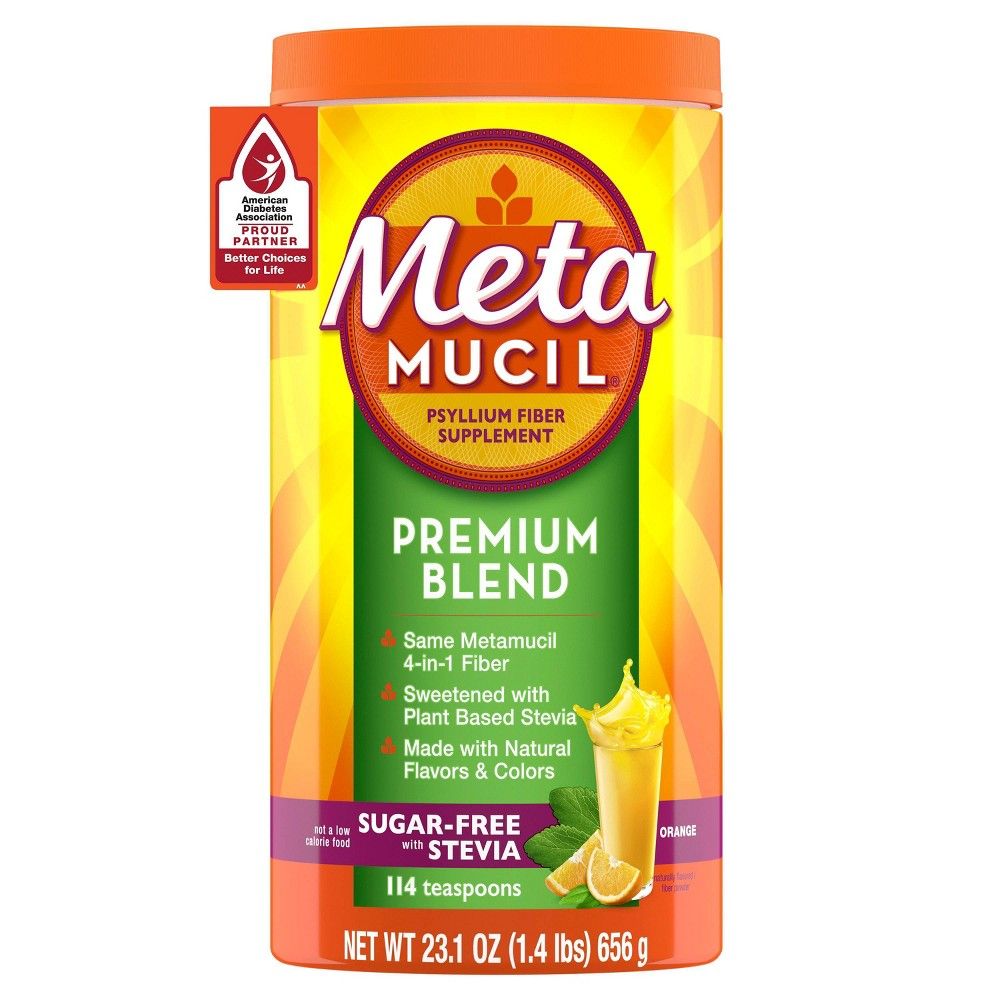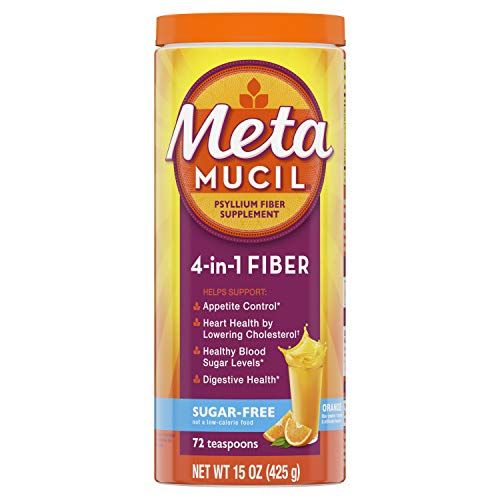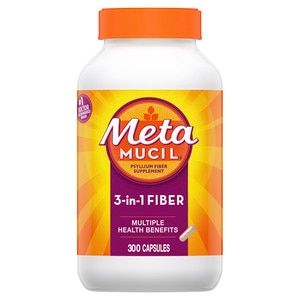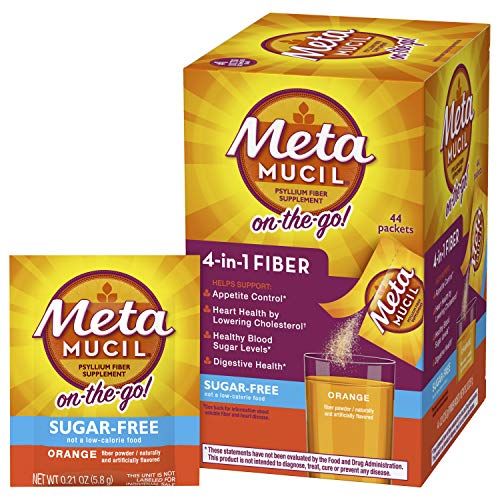If U.S. residents were graded on their fiber consumption, most would get an F. Less than one in 10 Americans are getting the dietary fiber they need, according to a 2021 study presented at an American Society for Nutrition conference.
Fiber is a type of carbohydrate your body can’t digest, so what’s the big deal if you’re not eating adequate amounts of it? Your health, that’s what. The authors of the above study note that not consuming enough dietary fiber daily is associated with an increased risk of heart disease and other health concerns.
Dietary guidelines recommend that women and men eat 25 and 38 grams of fiber a day, respectively, but that’s just the minimum. “It’s fine—and great—to consume even more as tolerated,” says Nichole Dandrea-Russert, R.D.N., author of The Fiber Effect and blogger at purelyplanted.com.
The key is not only to eat enough fiber, but also to consume ample amounts of both types of fiber: soluble fiber, which forms a gel and helps slow digestion to aid in regulating blood sugar, cholesterol, and satiety; and insoluble fiber, which can help food move through your digestive system to keep you regular and add bulk to your stool. Avocados and oats, for example, contain significant amounts of both soluble and insoluble fiber. These foods are great sources of fiber, but even if you ate a medium avocado and one cup of oats every day (which you probably don’t), you’d only be at around 18 total grams of fiber.
One way to address the daily fiber shortfall in your diet is to take the Metamucil Two-Week Challenge, where you’ll take Metamucil daily, either in capsule or powder form, and reap the rewards—hello, regularity!—of its plant-based psyllium husk, a rich source of soluble fiber that helps promote healthy blood-sugar levels* and lower cholesterol levels†.
Sheryl Underwood, co-host of an award-winning TV talk show and Metamucil brand ambassador, knows all about the powerful effects of daily psyllium fiber intake. “Metamucil was the start of my journey to better health and wellness,” says Underwood, 59, who has been taking Metamucil regularly for the past four years. When she began taking Metamucil every day to keep things moving through her digestive system, she noticed benefits. “I didn’t feel as sluggish,” she says. “I felt lighter—it’s uncomfortable to have all that waste in you—and more energetic.”
To reap similar benefits, try this 14-day companion guide to the Metamucil Two-Week Challenge. Here are tips on how to get your digestive system humming along as you’re adding more fiber to your diet and reap the best possible results. Click each card to unlock your to-do. Want more information? Head past the cards to see why these actions will help improve your digestive health.
Day 1: Pick your product
Metamucil psyllium comes in different forms and flavors, including powders you can mix in water with a spoon and fiber capsules. Underwood’s favorite way to consume her Metamucil is to mix it in cold water—she likes Metamucil’s orangey taste. It also tastes great in smoothies. Tip: Keep your container of Metamucil where you’ll see it every day.
Day 2: Start with one serving of Metamucil
Increasing your fiber intake too much right off the bat can cause gastric discomfort. Even with a single serving, experiencing mild gas or bloating is normal and should go away after a few days, as your body gets used to the increased fiber. Once that subsides, bump up the serving size gradually to reach your desired daily intake, and make sure to also consume fiber through food sources.
Day 3: Keep a food journal
Take notes on how your body tolerates the additional fiber, especially if you have a history of food sensitivities. Tracking fiber intake in a journal can help you identify a specific food that’s causing discomfort, in which case you could cut back or try to get more. It may be just the type of fiber and your body needs to adjust. “If a food causes gas or bloating, it could potentially be the type of fiber in the food (namely, a new fiber introduced) or the quantity that’s being consumed,” Dandrea-Russert says.
Day 4: Figure out your water needs
Eating more fiber means you’ll need to drink more water. “Fiber and water work together to keep things moving easily and smoothly through your digestive system,” Dandrea-Russert says. “Without water, fiber would have a much more difficult time passing through and may cause discomfort, bloating, and constipation.” As a general guideline, divide your body weight (in pounds) by two to determine approximately how many ounces of water you’ll need every day. From there, the simplest indication of being hydrated is the color of your urine—pale yellow or clear is what you’re looking for, anything darker than that means you should drink more water.
Day 5: Add yoga to your daily routine
Preliminary studies have linked yoga to better digestive system functioning. Focus on poses that involve twisting, as they are thought to help bring blood flow to the digestive organs and keep things moving. You can then call on these poses throughout the day to help relieve any bloating or gas you may experience as your body is acclimating to digestive more fiber.
Day 6: Adopt a consistent eating schedule
Eating your meals and snacks at more or less the same times every day can help promote optimal digestion and help regulate hunger hormones. “If there’s too much time between meals and your body may signal that you’re hungry, you can be more likely to over-consume at that next meal, resulting in bloating and discomfort,” Dandrea-Russert says.
Day 7: Eat one or two prebiotic foods daily
Prebiotics are non-digestible carbohydrates that your good gut bacteria love, Dandrea-Russert says. Prebiotic-rich foods include leeks, garlic, onions, oats, sweet potatoes, asparagus, and flaxseeds. Aim to eat one or more servings of these foods daily, but you may want to increase slowly over time to help your body adjust smoothly.
Day 8: Assess how your body feels
By now you have been adding more fiber to your diet; how has your body been responding? Revisit your food journal and see if any gas and bloating is subsiding. If not, ask yourself if you are moving enough, or drinking enough water. After Underwood added Metamucil and more fiber-rich foods to her diet, she experienced some gas and bloating. She wasn’t complaining, though. “That’s how I knew it was working,” she says. Yet somewhere between seven to 10 days, those uncomfortable side effects began to disappear. You, too? That’s a good sign.
Day 9: Add fiber-rich foods
Fiber comes from plant-based foods like fruits, vegetables, nuts, beans, and whole grains. Although you should eat more of these foods for their health benefits, do it gradually to avoid gastrointestinal discomfort, Dandrea-Russert advises. Add about five to 10 grams of fiber from plant-based food per week. A half-cup of tofu or old-fashioned oats contains about five grams, for example.
Day 10: Add fermented foods
Fermented foods are those that use bacteria to make the food itself. “Together [with prebiotics], they contribute to a stronger gut microbiome,” Dandrea-Russert says. She recommends eating one to two tablespoons of fermented foods daily. Think sauerkraut, kimchi, miso, tempeh, and yogurt.
Day 11: Take a post-meal walk
Walking at any time of day can improve health and aid your gut, because exercise keeps you regular and supports digestion, Dandrea-Russert notes. According to a meta-analysis of the research examining the effects of exercise and gastric emptying, the amount of time and intensity matters. Short time periods and lower intensities are better when you are trying to support proper digestion, so a couple of leisurely laps around the block may be all you need.
Day 12: Do at least one relaxing thing every day
Stress can negatively affect gut motility, or your body’s ability to move waste through. You can’t eliminate all stress from life, but you can control how you respond to it, which is why stress experts recommend relaxation techniques. Whether it’s meditation, yoga, or even just savoring a cup of tea or playing with your cat for a few minutes, carve out some time each day (it could be as little as five minutes) to do something relaxing—during this two-week journey, and beyond.
Day 13: Set a goal of eating 30 different plant foods a week
Having better digestive health means having a healthier gut, and consuming a more diverse variety of plants is a good thing for overall nutrition and keeping your gut in balance. Eating at least 30 different plant foods every week may sound ambitious, but there’s no rush to reach 30 all at once. In this 14-day challenge, you introduced plant-based foods gradually into your diet. Going forward, make it your goal to add one to two new plant foods to your grocery shopping list every week.
Day 14: Keep up the good work!
Kudos for making it through the challenge! You’ve likely noticed positive changes in your body, and if you keep taking Metamucil going forward you could experience even more health benefits—including long-term effects like supporting your heart health by lowering your cholesterol † and supporting healthy blood sugar levels*. Build off the momentum you’ve created in the past two weeks by staying consistent with your new fiber regimen.
*THESE STATEMENTS HAVE NOT BEEN EVALUATED BY THE FOOD AND DRUG ADMINISTRATION. THIS PRODUCT IS NOT INTENDED TO DIAGNOSE, TREAT, CURE, OR PREVENT ANY DISEASE.
†Diets low in saturated fat and cholesterol that include 7 grams of soluble fiber per day from psyllium husk, as in Metamucil, may reduce the risk of heart disease by lowering cholesterol. One serving of Metamucil has 2.4 grams of this soluble fiber. One serving of Metamucil capsules has at least 1.8 grams of this soluble fiber.





